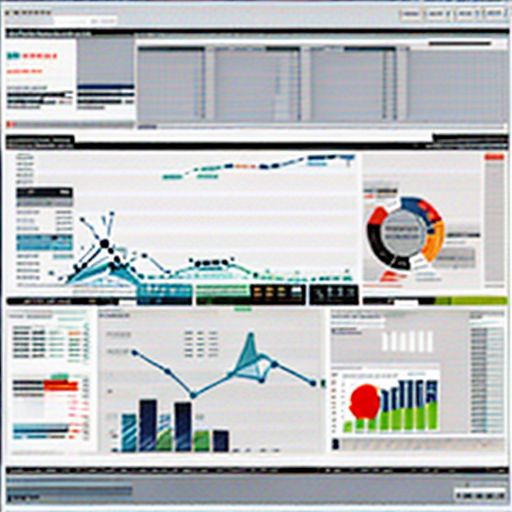In today’s fast-paced business environment, efficiency is key. That’s where Enterprise Resource Planning (ERP) software comes in. Imagine streamlining your operations, from sales and inventory to accounting and human resources, all within a single, integrated platform. Choosing the Best Erp Software can be a game-changer, but with a multitude of options available, the selection process can feel overwhelming.
This comprehensive guide will walk you through the essential factors to consider when choosing an ERP solution, empowering you to make an informed decision that aligns with your business needs.
Understanding Your ERP Needs: A Critical First Step
Before diving into the world of ERP software, it’s vital to take a step back and assess your own unique requirements.
What is ERP Software and Why is it Important?
ERP software integrates core business processes, providing a centralized system to manage data across departments. This integration leads to improved collaboration, increased efficiency, and better decision-making.
Key Considerations for Choosing the Best Erp Software:
- Business Size and Industry: Different ERP solutions cater to specific business sizes and industries. A small business might benefit from a cloud-based ERP system, while a large manufacturing enterprise might require a more robust, on-premise solution.
- Functionality: Determine the core functionalities your business needs. Do you need strong financial management, supply chain management, or customer relationship management (CRM) capabilities?
- Deployment Model: Cloud-based ERP (Software as a Service) offers flexibility and scalability, while on-premise solutions provide greater control over data.
- Budget: ERP software pricing varies widely. Define your budget early on to narrow your options.
- Integration: Consider how well the ERP system integrates with your existing software and systems.
Exploring Popular ERP Software Options
The ERP market is brimming with options. Here’s a glimpse at some of the leading contenders:
- SAP: Known for its comprehensive functionality and suitability for large enterprises.
- Oracle ERP Cloud: A cloud-based solution offering a wide range of modules and scalability.
- Microsoft Dynamics 365: A suite of intelligent business applications, including ERP and CRM functionalities.
- Salesforce Sales Cloud: A popular CRM platform that also offers ERP features, particularly for sales and customer service.
- NetSuite ERP: A cloud-based ERP solution well-suited for businesses of all sizes.
Frequently Asked Questions About ERP Software
Q: How much does ERP software cost?
A: ERP software pricing can range from a few thousand dollars per year for cloud-based solutions to millions for large-scale on-premise implementations.
Q: How long does it take to implement ERP software?
A: ERP implementation timelines vary depending on the complexity of the software, the size of the business, and the amount of customization required. Implementations can take anywhere from a few months to over a year.
Q: What are the benefits of cloud-based ERP?
A: Cloud-based ERP solutions offer flexibility, scalability, and lower upfront costs compared to on-premise options.
erp.cungphuthe.com/wp-content/uploads/2024/07/erp-software-dashboard-669365.jpg" alt="Modern ERP Software Dashboard" width="512" height="512">Modern ERP Software Dashboard
Making the Right Choice: Key Takeaways
Choosing the best ERP software is an investment in the future of your business. By carefully evaluating your needs, researching different options, and asking the right questions, you can find a solution that streamlines your operations, improves efficiency, and empowers growth. Remember, the most suitable ERP software is the one that aligns best with your unique business objectives and paves the way for a more connected and successful future.
We’d love to hear about your experiences with ERP software. Share your thoughts, questions, and insights in the comments below!
